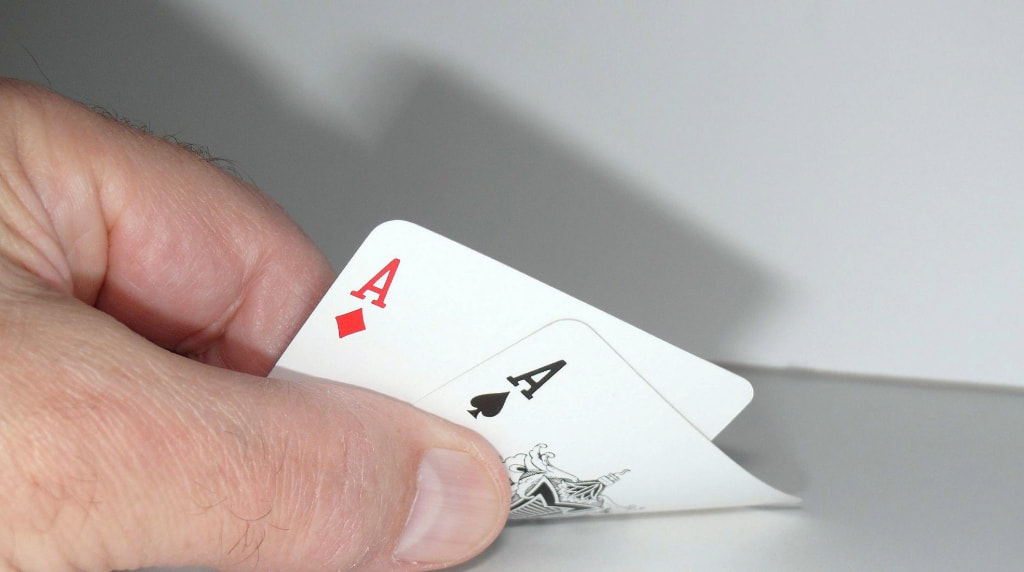Keeping Yourself Safe From Rigged Online Casinos
Hundreds of billions of dollars are wagered online each year, often with casinos based in other countries. This global gambling crush raises a critical question for players everywhere: are online casinos rigged? Understanding how different online games are regulated is the key to separating fact from fiction.

Are online casinos as safe as they seem?
Location, Location, Location
When we ask whether online casinos are rigged, there is a lot to unpack. The most important is jurisdiction. Are all of the online casinos operating out of the sunny Caribbean rigged? Definitely not. The number is probably quite low, but the issue remains. Without strong rules and an even stronger enforcement agency, we can’t know for sure.
However, in a tightly ruled marketplace like New Jersey, we can be assured that no shady behavior is taking place and that even slightly questionable practices will be met with a Gaming Control Board hearing. The ability to know you are dealing with legit online casinos makes for a healthy, growing legal venue where both operators and guests can feel safer.
Where casinos have no incentive to try even slightly shady behavior as it might cost them their extremely valuable gaming license. A permit in a well-regulated and orderly jurisdiction is always worth more over time than you might hope to make by cheating in the short term.
New Jersey is often held up as the gold standard for online gaming regulation. Still, almost all jurisdictions in North America, the UK, and many parts of Europe have adopted stringent rules for online casinos.
While these rules can be costly and time-consuming, most legal online casinos are happy to comply because they know that if they have the consumer’s trust, eventually, their house edge will be a license to print money.
Playing with licensed, regulated, and well-scrutinized casinos in jurisdictions with strong laws and the ability to seek legal redress is always advisable. Whether it’s New Jersey or Malta, online casinos are safest when vetted and backed by the state. Always try to play with sites that display a license from their appropriate regulating body on their home page; it will save you much aggravation.
Defining Rigged Casinos
Regulators on both sides of the Atlantic agree on many basic principles to make online casino gaming safe and more secure, such as the ones laid out below. Rigged casinos, by definition, don’t meet the following guidelines:
- Fair Gaming: Software must be random and do as it is supposed to do.
- No Criminal Actors: Stringent background checks into operators and where their money comes from to keep out organized crime.
- Prompt and Accurate Payouts: Money owed must be paid and paid promptly.
- Protection of Consumer Privacy: No selling or harvesting of customer data for sale; all transactions involving credit cards or banks must be secure.
- Commitment to Customer Support: Customer complaints are investigated thoroughly.
- Prevention of Underage Gambling: While age limits vary by country, strict policies are in place to make sure that age is verified.
Stronger Regulations on the Horizon?
However, the European Gaming and Betting Association and many other European legal jurisdictions, as well as an increasingly vocal minority in the States, also believe that regulated online casinos must adhere to much stronger safeguards.
They must keep vulnerable players at risk of gaming disorder or problem gambling off their sites. There are also increased calls for responsible, measured advertising regulations as more and more airwaves in some jurisdictions are bombarded with constant and pervasive gambling advertising.
The idea is that a rigged online casino isn’t just one that cheats you at the game; one that manipulates your emotions, lies about your chances of winning, or constantly pushes gaming in your face is also rigging the game against the consumer.
Whatever the definition of rigged ends up being, most regulators will soon expect licensed casinos to do more about problematic advertising and problem gambling.
Software Shenanigans
While society debates the edges of what constitutes the industry rigging advertising and exploiting people, most everyday gamblers just want to know that the software does what it says it does.
And whether you are playing with an online casino in Curacao or Connecticut, the way that most companies advertise that they have safe software is through the use of outside testing agencies like eCOGRA, GLI or BMM Testlabs.
These companies and others like them are hired by independent casinos. State and national gaming regulators review the software code and random number generators to ensure that they are indeed random and fair, or as fair as the house rules allow.
It is probably important to point out that these companies do not determine whether a 16% house edge is fair, only that if the online casino has its penny slot hold number set for that over millions of spins on that software.
If these online casinos pay for and pass screening with one of the gaming labs, then they will proudly display the badge on the home page of their website, demonstrating that their software is licensed.
The gaming lab, wishing to keep its good name and high standards, will periodically retest the software to ensure there are no deviations from the agreed-upon hold numbers. Legit online casinos proudly display licensing details on their homepage for all to see.
It is very hard to make a reliable guess at the percentage of online casinos in offshore grey markets that don’t submit software for integrity checks that may be cheating. Still, dozens have been discovered and shut down over the past decade, so it’s definitely a case of buyer beware.
Bait and Switch
After rigged software, the second hurdle you need to face if you insist on playing with unlicensed operators is the bait and switch. Many platforms in licensed jurisdictions offer fair online casino bonuses as a way to attract new customers.
Online operators in some less policed parts of the world are notorious for offering 300% bonuses or higher on your initial deposit. But buried in the fine print are terms you will never be able to satisfy, and you are likely to see your bonus and original deposit never get paid.
Even those who comb over terms and conditions before depositing have reported terms being changed in the middle of a bonus playthrough. And, of course, who can you turn to to mediate this kind of tactic? Well, generally, no one, or perhaps, a licensing board on some sunny island filled with nephews and uncles of the casino’s owners.
Another variation of this is just not ever getting your withdrawal processed. You submit withdrawal after withdrawal, and your money never arrives. Or, one of our personal favorites, they want to charge you a $99 processing fee to send you a wire transfer.
Or perhaps you find some odd charges on your credit card or withdrawals on your bank account after submitting highly secure personal information about yourself to some distant online casino. Maybe your inbox is suddenly filled with very targeted email spam. Oops!
Many of these online casinos can be spotted by first reading Trustpilot or other reviews. There are likely to be thousands of unhappy customers expressing their frustration somewhere on the internet; you just need to look for them.
Of course, a casino that would steal your money is also one that might pay to have reviews deleted or hidden by some nefarious means, so that is certainly something to consider as well.
Crypto Conundrum
The past few years have seen an explosion of crypto casinos across the globe. These casinos are intentionally opaque and hard to trace, but their advertising claims that that is a feature, not a bug. These casinos don’t generally ask for identification at all.
Anonymity is another part of the appeal, we’re told. They also push a narrative of lower processing fees, faster deposits and withdrawals, and the ability to access these casinos from just about anywhere.
But take a step back, and it looks like you are being asked to send almost impossible-to-trace crypto coins to an organization that posts no identifying info. While you can certainly count on your money being processed through the front door very quickly and mostly anonymously, we’re not sure what keeps it from going out the back door just as quickly and anonymously.
Since they don’t want to know who you are, how old you are, or whether you are in a terrorist organization, we suppose there is every chance that you may get a knock on your door one day asking about your crypto mixing with Cartel Crypto, whether you are an agent of XYZ Casino, and whether you have ever traveled to Sinaloa.
Conclusion – There’s a Reason to Choose Legit Casinos
The simplest way to avoid rigged casinos is to stick with licensed, regulated platforms. Look for clear licensing information on the casino’s homepage, and research reviews to verify their reputation. While unregulated casinos may seem appealing, they often pose significant risks. Proceed with caution and always prioritize safety when choosing where to play. Choosing regulated online casinos ensures a safe gaming experience.



